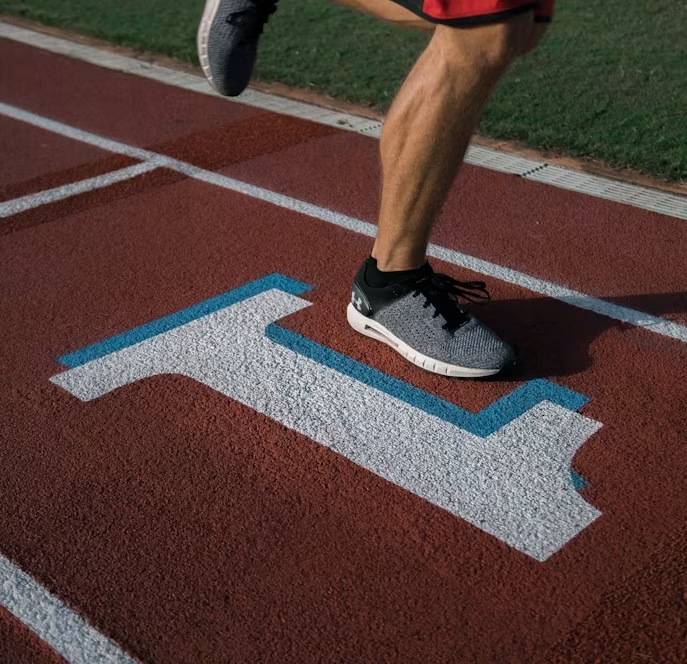Gastrointestinal symptoms (GIS) are frequently reported by endurance athletes, with up to 96% of ultramarathon runners reporting discomfort during their race1. The occurrence of such discomforts may be detrimental to endurance exercise performance and may lead to withdrawal from competition. Therefore, identifying individuals who are more likely to experience gastrointestinal symptoms (GIS) and developing strategies to alleviate or avoid them is of interest to athletes, coaches and sports health professionals.
A study2 published in the journal Sports Medicine Open in late 2021 assessed the relationships and gender differences between psychological status (recovery, stress, anxiety and confidence) and gastrointestinal symptoms before and during a 56 km ultramarathon running event and identified predictors of the symptoms. Athletes completed anxiety, recovery, stress, and gastrointestinal symptom questionnaires for three days before the race and immediately before the race.
This is the first study to monitor and investigate acute changes in psychological status and the possible association with gastrointestinal distress in the three days before and during an endurance race, and to explore possible gender differences in this question. A research design was attempted to estimate the occurrence (number and severity) of gastrointestinal disturbances during an ultramarathon based on previously reported gastrointestinal disturbances, stress, anxiety, recovery and body mass.
The statistical analysis proved a series of data:
- GIS occur more often with increased exercise intensity, prolonged exercise duration and running exercise (rather than cycling, for example).
- Determining the etiology of exercise-related GI symptoms is complex due to a multifactorial causality.
- Other possible contributing factors for development of discomfort include diet and individual characteristics of participants, such as higher body mass, less training/running experience, older age, female gender, and history of previous GI discomfort3.
The results showed that psychological state (stress and anxiety) in the three days before a 56 km ultramarathon running race was associated with post-race gastrointestinal distress.
Pre-race psychological state should be considered a potential contributor to the development of ultramarathon discomfort alongside established factors such as exercise stimulation and food intake.
Endurance athletes experiencing GIS during competition should investigate increased stress and/or anxiety as a potential contributor and identify whether management strategies can reduce the occurrence and severity of GIS. Based on the findings of the current study, the following can be recommended for athletes competing in endurance events such as ultramarathon running:
- Monitor anxiety and gastrointestinal symptoms in the three days leading up to the race. If the discomfort occurs alongside increased anxiety and/or stress, consider implementing targeted strategies to reduce excessive stress or anxiety. It is of course noted that more evidence is needed to establish the effectiveness of such strategies in a competitive context.
- If the discomfort occurs in the absence of increased stress and/or anxiety it is beneficial to have the athlete examined by a specialist gastroenterologist and/or look for causes related to diet and exercise.
- Costa R, Snipe R, Kitic C, Gibson P. Systematic review: exercise-induced gastrointestinal syndrome—implications for health and intestinal disease. Aliment Pharmacol Ther. 2017;46(3):246–65.
- Urwin CS, Main LC, Mikocka-Walus A, Skvarc DR, Roberts SSH, Condo D, Carr AJ, Convit L, Jardine W, Rahman SS, Snipe RMJ. The Relationship Between Psychological Stress and Anxiety with Gastrointestinal Symptoms Before and During a 56 km Ultramarathon Running Race. Sports Med Open. 2021 Dec 11;7(1):93. doi: 10.1186/s40798-021-00389-5. PMID: 34897557; PMCID: PMC8665950.
- Ten Haaf DS, van der Worp MP, Groenewoud HM, Leij-Halfwerk S, Nijhuis-van der Sanden MW, Verbeek AL, et al. Nutritional indicators for gastrointestinal symptoms in female runners: The ‘Marikenloop study.’ BMJ Open. 2014;4(8):e005780.
ΑΓΓΕΛΙΚΗ ΦΩΤΕΙΝΟΥ


